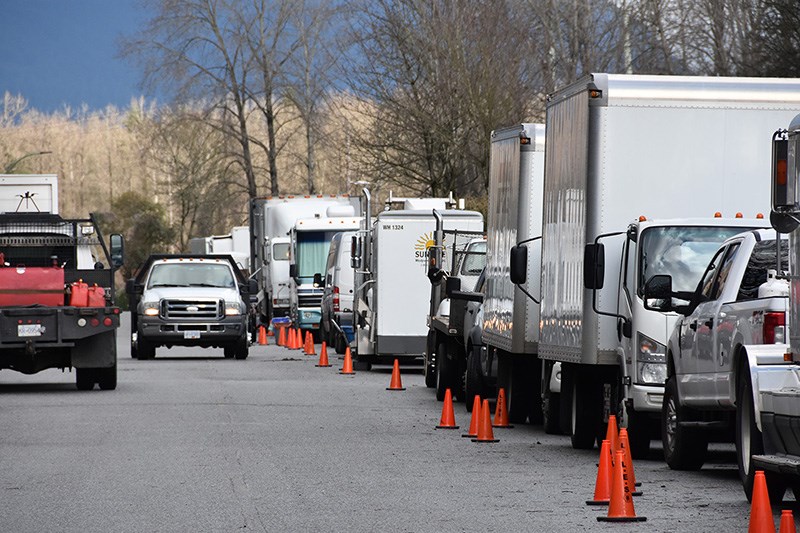Once a quiet refuge, the Riverview Hospital grounds have become a hive of movie-making and construction activity even as services for mental health and other programs lease space on the site.
But changes to the 244-acre property have created a problem more often seen in areas of high density — parking — requiring a closer look by BC Housing and others interested in the site who are worried about rules potentially clamping down on visitors.
“We don’t want to see the parking restrictions become a barrier to volunteers working on the site or visitors coming to visit the grounds,” said Coquitlam Coun. Craig Hodge, who chairs the city's Riverview Lands Advisory Committee.
Last week, council agreed to send a letter to BC Housing about the issue and Hodge said he hopes the provincial agency will keep council updated about any parking changes on the site.
Currently, BC Housing is in the midst of hiring a manager who will look at solutions to the parking problem, according to a spokesperson.
Parking demand at the former Riverview Hospital lands has grown substantially in recent years thanks to filming and construction of new facilities, such as the Valleyview building and the Centre for Mental Health and Addictions.
In an email to The Tri-City News, BC Housing communication manager Rajvir Rao confirmed that parking is tight on the site even though there are 1,450 spaces available.
Much of the demand comes from film crews and the site can accommodate up to four productions at a time. But each movie shoot needs between 120 and 150 stalls while construction workers on site building two new mental health facilities will need between 200 to 300 parking stalls for sub-trades, deliveries and storage, depending on phase of construction.
(On average, 90 film and television productions are shot each year in Coquitlam, according to the city.)
As well, the site is home to approximately 130 patients who have nursing and support staff who work on the site, and tenants in other occupied buildings are entitled to parking as part of their lease agreements.
The result is, there are more people who need parking than spaces available.
Hodge said he hopes initiatives to deal with the parking problem won’t result in any new temporary parking spots that could mean disturbance of land at the site. And he doesn’t like the idea of pay parking, especially for volunteers.
But he said some sort of solution is necessary; providing more transit is one idea he hopes BC Housing pursues. As well he would like to see more carpooling and other opportunities.
“Management is better than expansion and transit would be a good option for that site,” he said, adding that any solutions should involve maximizing existing parking, not adding more.



